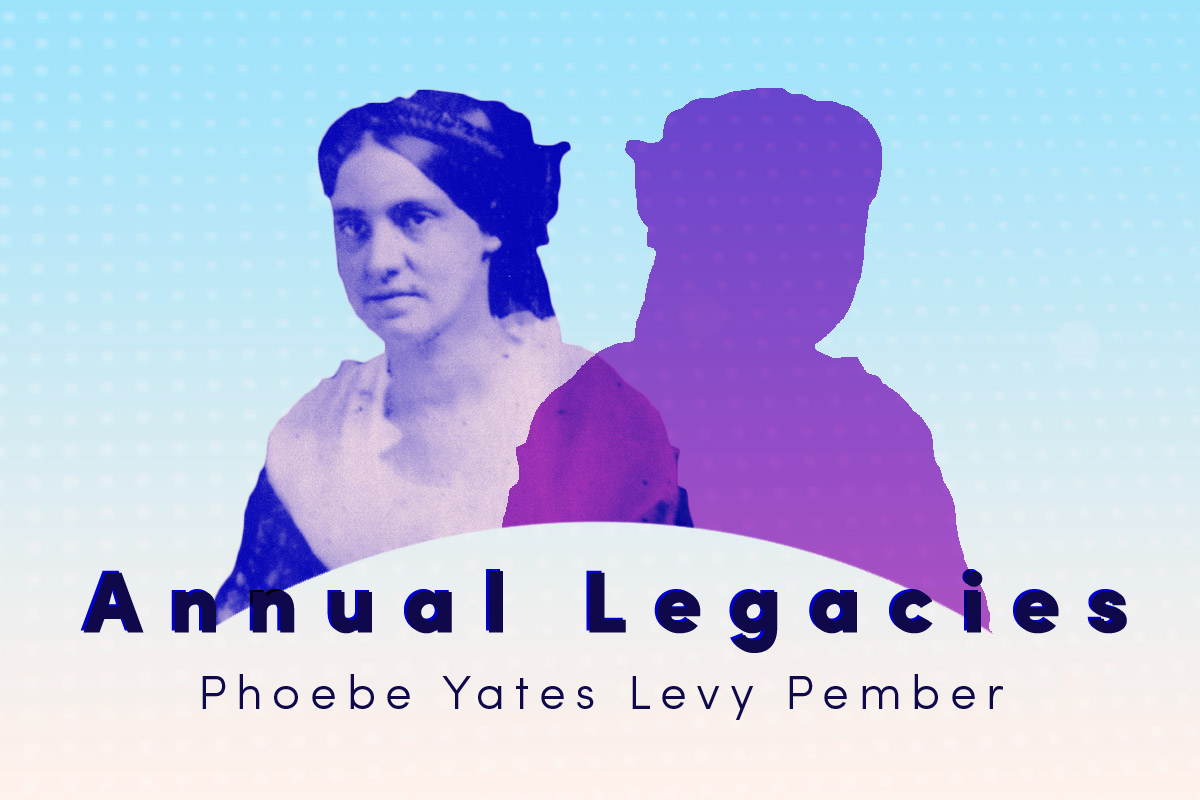
Born Phoebe Yates Levy on August 18, 1823, in Charleston, South Carolina, she was the fourth of seven children in a prominent Jewish family. Her parents, Samuel Yates and Martha Abrahams, moved within the Charleston elite until they relocated to Savannah, GA in the late 1840s due to financial troubles.
In 1856, Phoebe married Bostonian Thomas Pember. Their marriage lasted only five years; Thomas succumbed to tuberculosis in July 1861, the first year of the Civil War. Now widowed, Phoebe briefly moved back in with her parents in their new home in Marietta, Georgia where they had fled for safety at the start of the war.
Mary Pope Randolph, a friend and the wife of the Confederate secretary of war, offered Pember the position of chief matron of one of the five divisions at Chimborazo Hospital in Richmond, Virginia in November 1862. In September that same year, the Confederate States Congress had passed The Hospital Bill, enabling women to become matrons at Confederate hospitals to “exercise a superintendence over the entire domestic economy of the hospital, to take charge of such delicacies as may be provided for the sick; to apportion them out as required, to see that the food or diet is properly prepared, and all such other duties as may be necessary.” Starting her new post in December, Phoebe now oversaw part of one of the largest military hospitals in the world.
Pember remained at Chimborazo hospital for three years, performing a multitude of duties. She oversaw everything from dietary needs to the supervision of whiskey used for medical purposes — something that resulted in numerous battles. Her strict supervision of whiskey was the subject of everything from arguments and being accosted by the ward surgeon, to a confrontation with a patient that she eventually had to threaten with a gun. But throughout this time, her primary focus was on nursing the wounded and sick soldiers in her wards. During the course of the war, she worked alongside nurses and surgeons to tend to over 15,000 patients.
On April 3, 1865, after the Confederate government evacuated Richmond, Chimborazo Hospital surrendered to the U.S. Army. Phoebe remained at the hospital and cared for the remaining Confederate soldiers, as well as the Union soldiers that had been moved there. She made her way back home to Georgia. Her memoir, A Southern Woman’s Story, published in 1879, gives us a detailed account of her work during the war.
As our society now looks to medical staff working tirelessly in hospitals around the world, so too did soldiers and their families during the American Civil War. The need of having someone to help us when we are sick or injured is something that resonates throughout time. And today, thanks to the digital age, we know the names of the frontline medical staff (and all essential workers) that have helped our families and friends, just as they are able to communicate their stories and hardships to us. They are already becoming part of our nation’s–and the world’s–history.
Today, we ask you to help ACWM to remember their legacies by donating to the Annual Legacy Campaign. Your funding is imperative to helping the museum preserve one of the largest collections of Civil War artifacts in the world and the stories that go along with them, as well as provide unparalleled educational resources for teachers, their students, and for you.
